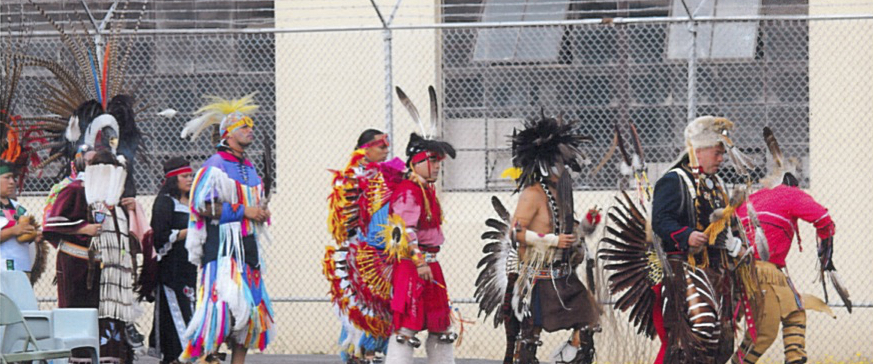Grantee: Lakota Oyate Ki
Located within the walls of the Oregon State Penitentiary, Lakota Oyate Ki engages incarcerated Native Americans in traditional cultural and spiritual practices. With a grant from MRG Foundation, they are organizing in one of the most difficult environments and securing the religious and cultural rights of incarcerated Native Americans.
The Challenge
The United States incarcerates more people than any other country in the world. A sobering fact to start with, but it doesn’t end there. While dominant religious traditions are supported by the Oregon Department of Corrections, Native inmates are denied the right to follow their traditions, carry a medicine bag, or even have an eagle feather.
The Oregon State Penitentiary will not allow any Native American ceremonies to be conducted without an outside spiritual leader, and OSP won’t pay to bring those Native spiritual leaders into the penitentiary. These policies reflect a widespread and longstanding effort to diminish Native cultural identity and independence – both inside and outside of the prison system.
Organizing a Response
MRG’s support has allowed Lakota Oyate Ki to organize a response to racist policies within the prison and to provide a spiritual leader to guide Native inmates through traditional cultural and spiritual teachings.
Lakota Oyate Ki creates a venue for incarcerated Native Americans to work together to address their collective concerns and needs to the prison administration. Their organizing within the prison system has resulted in expanding basic religious freedoms like access to ceremonial sweats and the right for inmates to possess an eagle prayer feather. Lakota Oyate Ki has also secured the right to host an annual powwow, where inmates and their guests gather together to celebrate Native culture and teachings.
Victories, Inside and Out
Lakota Oyate Ki has also established strong ties to community groups based beyond the penitentiary’s walls. Their cultural preservation work inside the prison and partnership development work outside the prison combine to build a powerful community for Native Americans to return to after incarceration.
These victories can seem small, but taken in the context of a controlling prison system and a wider pattern of Native culture being silenced and marginalized, they represent truly significant steps toward advancing the rights of Native Americans within the Oregon State Penitentiary.





